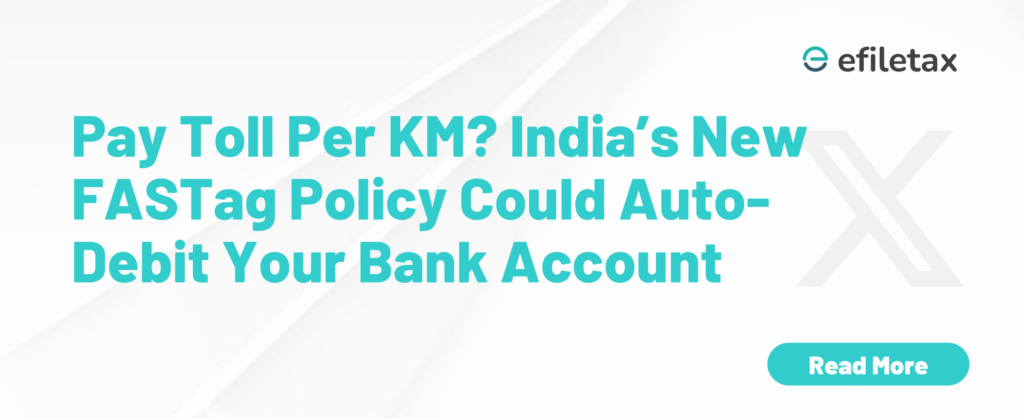
India’s New Toll Tax Policy: How Kilometer-Based Tolling Will Work
As per recent government announcements, toll charges will soon be levied based on the exact distance travelled, rather than fixed toll booth rates. This move aims to make toll payments more transparent, fair, and efficient.
What Is the Kilometer-Based Toll Policy?
Under the new policy framework:
- Toll will be charged based on actual kilometers travelled
- GPS and FASTag systems will be integrated for seamless tracking
- Automatic deduction from the linked bank account through FASTag
- Manual toll booths will gradually be phased out
Why This Policy Matters
Here’s why this reform is important:
| Problem With Current System | Benefits of Kilometer-Based Tolling |
|---|---|
| Flat toll even for short travel | Pay only for actual distance covered |
| Delays at manual booths | Faster travel with automatic deductions |
| Lack of transparency in toll fees | Transparent, usage-based pricing |
| Higher charges during diversions | Fairer billing regardless of route change |
Legal and Policy Developments
- The Ministry of Road Transport and Highways (MoRTH) is finalizing the draft framework.
- Implementation will start with select National Highways before pan-India rollout.
- As per MoRTH, a pilot project using GPS-based tolling is already underway in certain corridors.
Source: morth.nic.in
FASTag at the Centre of the New System
The system will rely heavily on:
- FASTag technology, which already covers over 98% of toll plazas
- Bank-linked auto-debit based on kilometers
- Camera-based vehicle verification to prevent toll evasion
- Integration with VAHAN (RC and vehicle database)
Expert Insight: How This Impacts Daily Commuters
“For regular travellers and transport operators, this change could cut monthly toll expenses by 20–25%, especially where short distances are travelled frequently,” says a leading road transport analyst from Efiletax.
Implementation Timeline
- Draft policy expected to be notified by mid-2025
- Rollout likely by 2026 starting with Delhi-Mumbai Expressway and similar corridors
Practical Tips for Drivers and Business Owners
- Ensure your FASTag is active and linked to a valid bank account
- Keep your vehicle details updated in the VAHAN database
- Track toll expenses via FASTag-linked apps
- For logistics firms, start integrating trip logs with toll records for better cost accounting
FAQs
Q1: Will toll booths be removed entirely?
Not immediately. Manual booths will remain until full GPS rollout.
Q2: What happens if GPS fails or FASTag is inactive?
Fallback systems and penalties may apply. Keeping FASTag active is mandatory.
Q3: Who bears the cost of GPS installation?
Likely the government or toll operator, as part of the infra upgrade.
Summary
India’s upcoming kilometer-based toll policy will charge users based on actual distance travelled via GPS and FASTag. This reform aims to reduce unfair tolling, eliminate booth delays, and ensure transparent billing. Rollout will begin on key highways by 2026 under MoRTH’s digital infrastructure upgrade program.